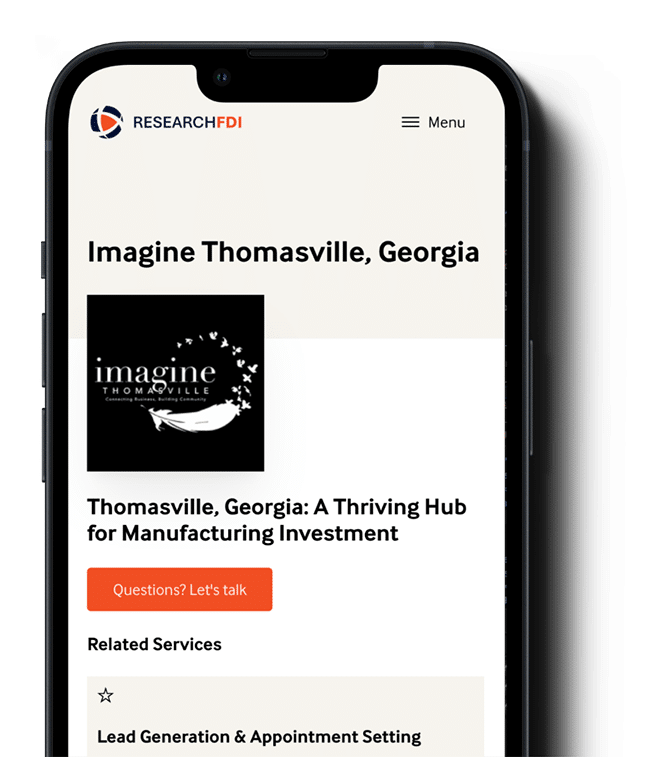Foreign direct investment (FDI) occurs when an individual or business owns at least 10% of a foreign company. When investors own less than 10%, the International Monetary Fund (IMF) defines it simply as part of a stock portfolio. Whereas a 10% ownership in a company doesn’t give an individual investor a controlling interest in a foreign company, it does allow influence over the company’s management, operations, and overall policies.
FDI is critical for developing and emerging market countries. Companies in developing countries need multinational funding and expertise to expand, give structure, and guide their international sales. These foreign companies need private investments in infrastructure, energy, and water in order to increase jobs and salaries.
- More from ResearchFDI:
There are various levels of FDI which range based on the type of companies involved and the reasons for the investments. An FDI investor might purchase a company in the targeted country by means of a merger or acquisition, setting up a new venture, or expanding the operations of an existing one. Other forms of FDI include the acquisition of shares in an associated enterprise, the incorporation of a wholly-owned company, and participation in an equity joint venture across international boundaries.
Investors who are planning to engage in any type of FDI might be wise to weigh the investment’s advantages and disadvantages.
Advantages of foreign direct investment:
- Economic growth
The creation of jobs is the most obvious advantage of FDI, one of the most important reasons why a nation (especially a developing one) will look to attract foreign direct investment. FDI boosts the manufacturing and services sector which results in the creation of jobs and helps to reduce unemployment rates in the country. Increased employment translates to higher incomes and equips the population with more buying powers, boosting the overall economy of a country.
- Human capital development
Human capital involved the knowledge and competence of a workforce. Skills that employees gain through training and experience can boost the education and human capital of a specific country. Through a ripple effect, it can train human resources in other sectors and companies.
- Technology
Targeted countries and businesses receive access to the latest financing tools, technologies, and operational practices from all across the world. The introduction of newer and enhanced technologies results in company’s distribution into the local economy, resulting in enhanced efficiency and effectiveness of the industry.
- Increase in exports
Many goods produced by FDI have global markets, not solely domestic consumption. The creation of 100% export oriented units help to assist FDI investors in boosting exports from other countries.
- Exchange rate stability
The flow of FDI into a country translates into a continuous flow of foreign exchange, helping a country’s Central Bank maintain a prosperous reserve of foreign exchange which results in stable exchange rates.
- Improved Capital Flow
Inflow of capital is particularly beneficial for countries with limited domestic resources, as well as for nations with restricted opportunities to raise funds in global capital markets.
- Creation of a Competitive Market
By facilitating the entry of foreign organizations into the domestic marketplace, FDI helps create a competitive environment, as well as break domestic monopolies. A healthy competitive environment pushes firms to continuously enhance their processes and product offerings, thereby fostering innovation. Consumers also gain access to a wider range of competitively priced products.
- Climate
The United Nations has also promoted the use of FDI around the globe to help combat climate change
Disadvantages of foreign direct investment:
- Hindrance of domestic investment
Sometimes FDI can hinder domestic investment. Because of FDI, countries’ local companies start losing interest to invest in their domestic products.
- The risk from political changes
Other countries’ political movements can be changed constantly which could hamper the investors.
- Negative exchange rates
Foreign direct investments can sometimes affect exchange rates to the advantage of one country and the detriment of another.
- Higher costs
When investors invest in foreign counties, they might notice that it is more expensive than when goods are exported. Often times, more money is invested into machinery and intellectual property than in wages for local employees.
- Economic non-viability
Considering that foreign direct investments may be capital-intensive from the point of view of the investor, it can sometimes be very risky or economically non-viable.
- Expropriation
Constant political changes can lead to expropriation. In this case, those countries’ governments will have control over investors’ property and assets.
- Modern-day economic colonialism
Many third-world countries, or at least those with history of colonialism, worry that foreign direct investment would result in some kind of modern-day economic colonialism, which exposes host countries and leave them vulnerable to foreign companies’ exploitation.
- Poor performance
Multinationals have been criticized for poor working conditions in foreign factories.
About Research FDI:
Our experienced team of economic development and research consultants has generated leads and investment projects for more than 120 economic development organizations. We put our clients in front of corporate decision makers seeking to expand or relocate their organizations to a new geographic location. We’re focused on helping our clients create important business relationships that will serve to grow awareness of their region, promote its economic strengths and increase direct investment.



